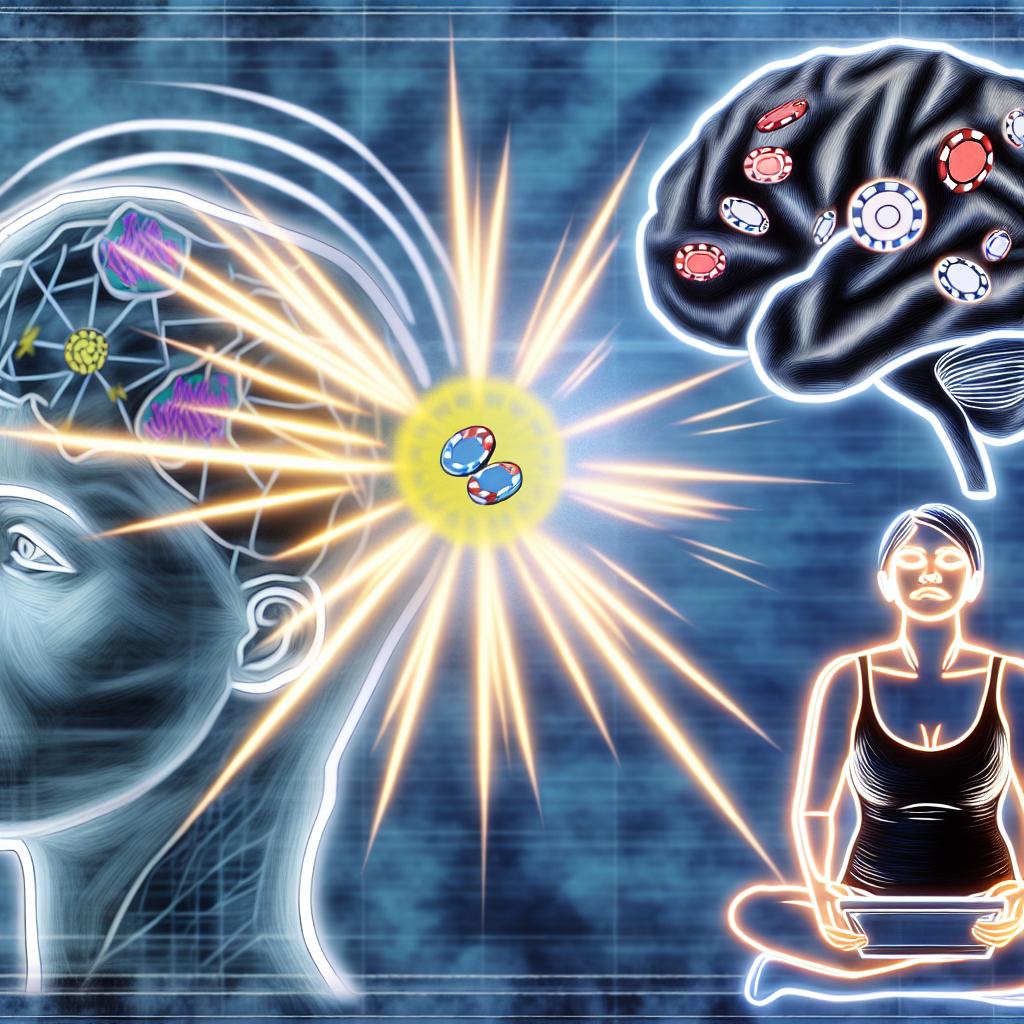The Influence of Dopamine on Problem Gaming
The increasing prevalence of problem gaming has led researchers to investigate various biological and psychological factors that contribute to this behavior. One of the central elements being researched is dopamine, a neurotransmitter in the brain. This article explores the role of dopamine in problem gaming, providing a comprehensive understanding of the mechanisms involved.
Understanding Dopamine
Dopamine is widely referred to as the brain’s “pleasure chemical.” It is pivotal in shaping our experiences of pleasure and reward. When individuals anticipate or achieve something rewarding, such as winning a game, dopamine is released. This release serves to reinforce the behavior and encourages repetition. This mechanism plays a crucial role in human survival, motivating behavior conducive to well-being.
Dopamine’s Role in Pleasure and Motivation
Dopamine doesn’t solely dictate the sensation of pleasure but also significantly motivates actions. It helps in determining the appetitive behaviors that an organism finds rewarding, guiding future actions and decisions. This link between dopamine and motivation becomes particularly critical in understanding behaviors that turn problematic, such as gaming.
Dopamine and Gaming
In the realm of gaming, dopamine release can be triggered by various in-game achievements, like winning a level or unlocking new content. These rewards might result in experiences similar to other dopaminergic activities, like eating or socializing. Over time, the brain may start associating these gaming rewards with the activity itself, potentially causing an incessant cycle of play as individuals strive to continue experiencing dopamine-induced pleasure.
Reward System and Gaming Addiction
Problem gaming is frequently connected to the overstimulation of the brain’s reward system. The consistent and intense release of dopamine during gaming sessions may gradually impair the effectiveness of this neurotransmitter. Consequently, individuals may need more gameplay to achieve the same pleasure, echoing patterns commonly seen in addiction. This transition from normal gaming behavior to problem gaming or gaming addiction often hinges on the neurological underpinnings shaped by dopamine.
Psychological Dependency and Habit Formation
The psychological dependency formed on dopamine-induced rewards in gaming can lead to significant habit formation. This habit becomes increasingly ingrained in daily life, further complicating the individual’s ability to moderate gaming habits and distinguishing engaging play from dependency-laden activities.
Potential Consequences
The relentless pursuit of dopamine-stimulated rewards through gaming can adversely impact various life aspects. Problem gaming is associated with numerous challenges, including academic or occupational hurdles, strained relationships, and a general neglect of responsibilities. Grasping dopamine’s role in these scenarios is crucial for effectively addressing the underlying causes of problem gaming.
A Broad Spectrum of Impact
The impact of problem gaming extends beyond immediate gratification. It can lead to long-term consequences that may require substantial time and effort to rectify. From cognitive impairment due to excessive screen time to socio-emotional challenges, the consequences manifest in multifaceted ways, affecting both personal and professional spheres of an individual’s life.
Approaches to Mitigation
Addressing problem gaming necessitates a comprehensive understanding of individual motivations and the neurobiological components involved. Reducing gaming time, seeking alternative activities offering healthy dopamine release, and engaging in cognitive behavioral therapy are some approaches to mitigate the effects of gaming addiction. Additionally, exploring how alterations in dopamine pathways contribute to problem gaming could pave the way for more effective treatment interventions.
Therapeutic and Practical Interventions
Therapy approaches such as cognitive behavioral therapy (CBT) can assist individuals in identifying maladaptive gaming behaviors and developing healthier coping strategies. Furthermore, practical interventions, like setting time limits and engaging in social or physical activities, offer tangible solutions to modify and balance daily routines.
Additional Resources
For those seeking more information, numerous online resources delve deeper into the link between dopamine and problem gaming. Visiting a reputable mental health institute can provide valuable insights and guidelines for individuals affected by or concerned about problem gaming. Similarly, health organizations specializing in addiction offer resources and support tailored to gaming-related issues.
Continued Investigation and Support
The continued exploration of dopamine’s role in problem gaming is crucial in developing strategies to counter this growing concern. By advancing our understanding, we can work towards creating solutions that promote healthier gaming habits and significantly improve overall well-being. Engaging with content and resources from credible institutions ensures informed approaches can be adopted and implemented effectively.
This nuanced exploration of dopamine’s involvement in problem gaming illustrates the complexity of mechanisms driving addictive behaviors and highlights critical interventions needed to address and outgrow these patterns.

